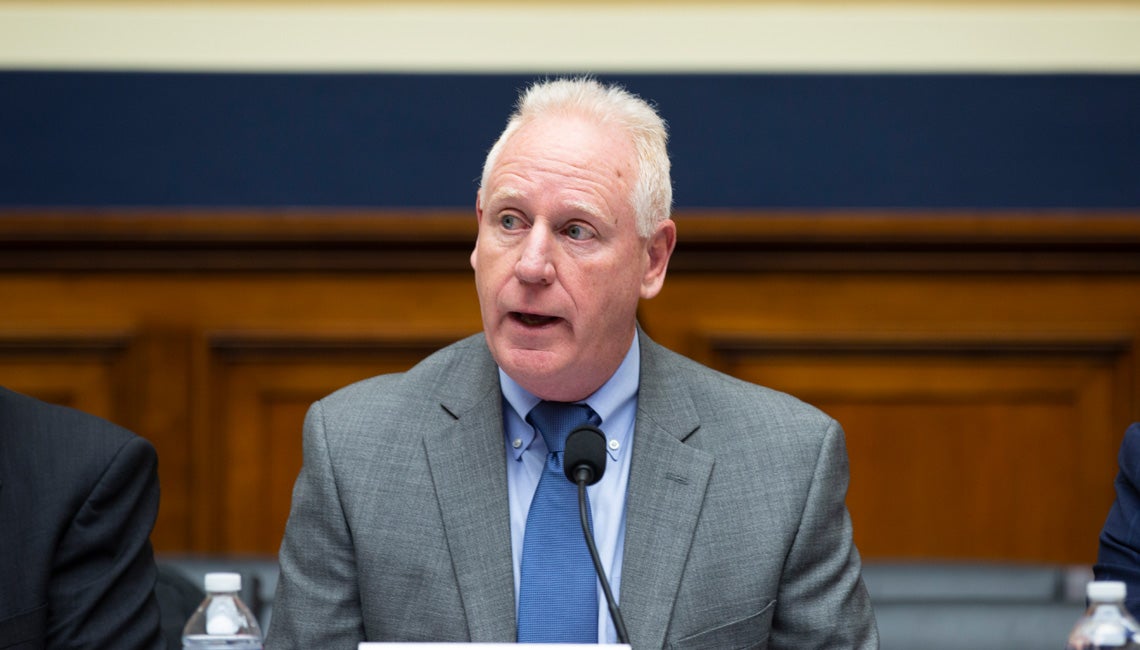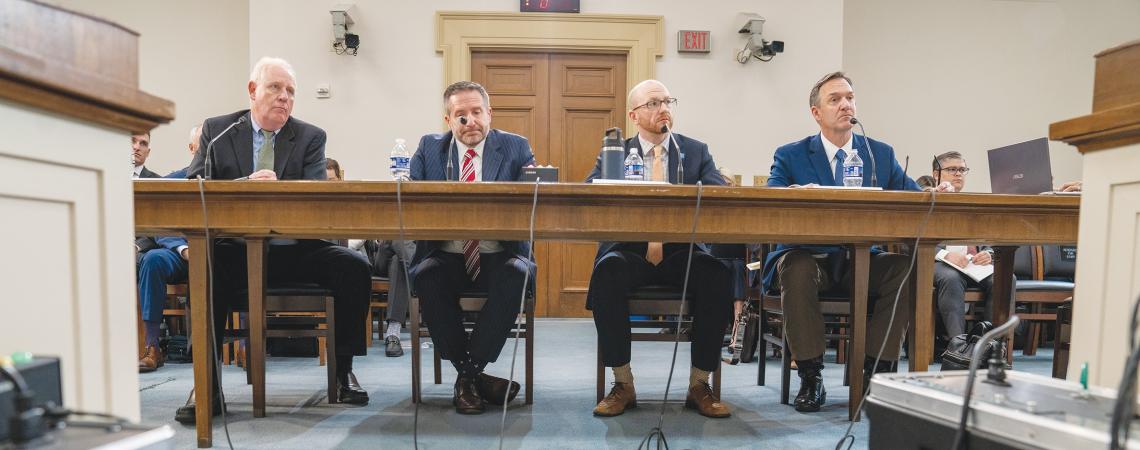Pat O’Loughlin’s first column in what was then Country Living magazine, upon his elevation to president and CEO of Buckeye Power and the co-op statewide association in 2015, took note of “interesting times.” Now, as he retires from the post, he says the times are by no means any less interesting.
The electric industry as a whole was in the final stages of a radical clean-up in 2015. The Cardinal Power Plant in Brilliant, of which Ohio co-ops were part-owners along with American Electric Power, had survived a nationwide wave of coal plant closures, thanks to more than $1 billion in investments that transformed it into one of the cleanest facilities of its kind in the world.
O'Loughlin has been called to testify before Congress about electric reliability, affordability, and environmental responsibility on multiple occasions.
Nevertheless, the U.S. EPA had just issued a set of new regulations that Cardinal was unlikely to be able to meet, and while the Supreme Court eventually struck down those rules, more have followed. The polarization that has divided the American public on so many issues put a focus on electricity generation — while the rise of data centers, electric vehicles, and the like has driven demand for electricity to an all-time high. Interesting times (to say the least) for O’Loughlin and the co-ops.
“The worst thing that’s ever happened to our industry is that it’s become overly politicized,” O’Loughlin says. “We’re an industry that’s built on science and engineering. Making electrons get to where they need to go, all at the speed of light, is actually an amazing thing that we’ve accomplished. But now political talking points have overwhelmed our ability to have a rational conversations about what will work and what won’t work.”
O’Loughlin, who earned a master’s degree in environmental science at Miami University after completing his engineering physics degree, got his start in the industry working on early renewable energy and energy-efficiency programs, including early work with a prototype electric vehicle.
Those early days, he says, gave him unique insight about what is realistic and what is fantasy, and his job as CEO of Buckeye Power, the generation and transmission cooperative that provides power to more than 1 million Ohioans, put him in a position to be a rational voice in the national energy conversation.
O’Loughlin’s thoughtful approach helped the national co-op organization, the National Rural Electric Cooperative Association, become one of the most powerful voices within the electric utility industry when it comes to finding a balance between reliability, affordability, and environmental responsibility. He’s been called to testify before Congress about those topics on multiple occasions.
“The realization came pretty quickly that part of my job was to be involved in public advocacy for what we thought were commonsense solutions to some of these problems,” O’Loughlin says. “So I tried to have the biggest megaphone I could, and use it to work with people who were honestly trying to figure it out rather than just trying to demagogue things.”
Of course, while all that was happening, O’Loughlin also led groundbreaking work in his role as head of the statewide association of Ohio cooperatives.
His leadership, for example, led to advances in the overall safety culture at the co-ops around the state — including the opening of the Central Ohio Lineworker Training facility in Mount Gilead, where the state’s co-op lineworkers now get consistent, detailed training at every stage of their careers.
O’Loughlin also pioneered the statewide association’s foray into international outreach. In fact, next month, when a group of Ohio lineworkers travel to Guatemala to provide electricity to a remote area of that country, it will be the fourth such trip Ohio’s co-ops have taken, all of them organized by the statewide association.
He was honored nationally for modernizing the communications services the association provides to its member co-ops in the state — including a complete rebranding of the statewide magazine that has since been recognized twice as the best of its kind in the country, and adding a slew of digital communications tools.
Also, when uncertainty around EPA rules, among other factors, prompted AEP to sell its share of Cardinal Plant to the co-ops, Buckeye Power suddenly had to learn plant operations on the fly. O’Loughlin led the creation of Cardinal Operating Company to take on that challenge, with great success.
“When I talked about those interesting times in 2015, I didn’t realize all that was about to happen,” he says. “It made us a different kind of company than we had been, and I think a better one. What I have seen was people willing to put themselves out there and try things that were new and different and risky, knowing they could fail but willing to try anyway.”
And of course, times are still “interesting,” but O’Loughlin says the leadership team already in place — Craig Grooms, currently the co-op’s chief operating officer, will step in as new CEO in January — is ready to guide the company into whatever the future holds. “We have been and continue to be a learning organization, with a long history of being sensible, good co-op people,” O’Loughlin says. “We’ve never been afraid of challenges, and we are willing to learn and do new things. As a leadership team, I think everyone sees a lot of possible paths we might end up on. I know they’ll be ready.”










